Downfall
Last Resort Debt Collections
Things deteriorated slowly at first. Throughout the 90s he retained a semblance of his hard man status.
He started his own debt collection company, “Last Resort Debt Collections”, and clients would hire him to collect their money for a fee of £200. A local character named Dennis Flint was the main patron of his services. Dennis featured briefly towards the end of “Paul Sykes At Large” in one of its many comic scenes.

On the documentary, Paul visited Dennis at his mansion on Heath Common to discuss a job which had sent him abroad to sunny Spain. Dennis was one of Paul’s highest advocates. He too was a man with a colourful reputation. He’d spent many years in prison, was a fitness fanatic who lifted weights and boxed, and police suspected his financial success was garnered through trafficking narcotics.
In the short clip, Paul and Dennis sit behind Dennis’ famous Rolls Royce bar. Dennis puffs on a cigar, wearing one of his hilariously blatant toupees. When Paul asks him for a beer, Dennis ominously declares: ‘You know I don’t like you drinking here, don’t ya? I’ve always told ya before, I don’t like you smoking roll-ups and I don’t like you drinking my beer… When you ‘ant had a drink, you’re an educated man, when you’ve had a drink, you’re a fucking maniac, okay?’
While this might have been a scene planted for comedic effect – which in later years, it was found that parts of the documentary were staged – nevertheless, Dennis was right in his evaluation, and Paul would become a maniac in the years that followed.
Another client of Paul’s debt collection services was none other than Jimmy Savile. People claim that they were best mates; thick as thieves. Make of that what you will. After reading about his sexual proclivities, this titbit might paint Paul in an even more depraved light.
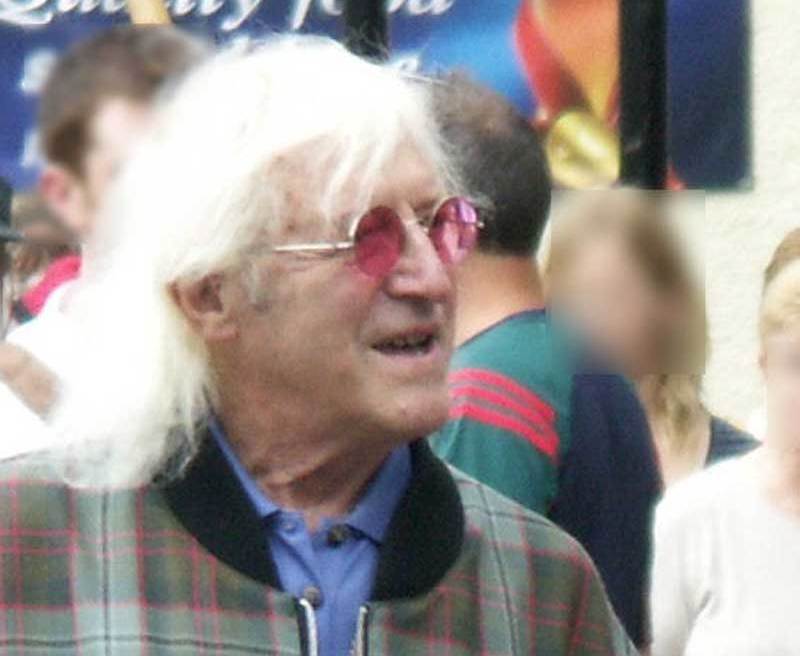
Maybe their relationship was strictly business. Jimmy was well known to hold people at arm’s length. Yet it is another aspect to Paul’s life that cannot be discounted. You know what they say – a man’s character will be judged by the company he keeps. Well, Paul certainly didn’t mingle with the most reputable of crowds.
Lupset Boys Club
As the 90s progressed, so did Paul’s downward spiral with drink. One commendable project he was part of was running a local youth club. The Lupset Boys Club (which he started with a policeman) managed to save many children’s lives. Paul would help shape these boys into men. He taught them the discipline of boxing, how to channel their anger in the gym rather than out in the world.
Boys who joined the club later attested to Paul being their saviour. They were heading down dark paths and he stopped them from making the same mistakes as him. He taught them not to turn out the way he had – in and out of prison all his life – and if any aspect of his life could be seen as valuable, then this would be it.
Unfortunately, though, the club only ran for eighteen months. Oftentimes, Paul would arrive to run the club intoxicated. He was unable to extend the building license, and the club fell apart.
Initial Decline
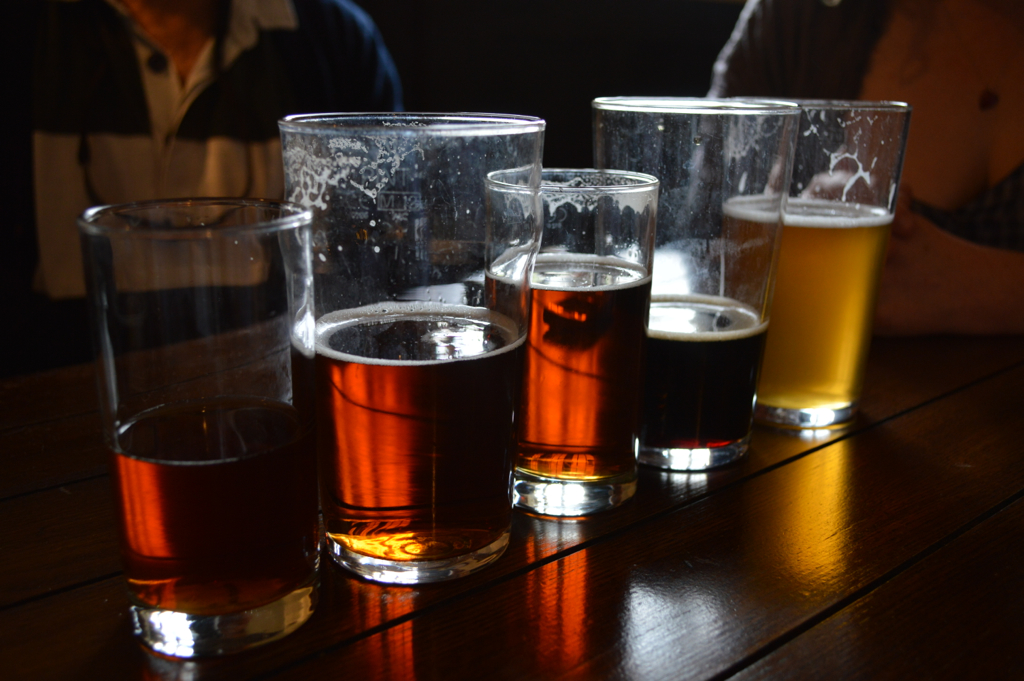
With no more time dedicated to anything of any value, Paul continued to spend his days drinking to the point of oblivion. He collected debts here and there, even hurting his friends for money.
No morals remained. He would do anything to afford another pint. To earn more cash, he participated in bare knuckle boxing fights with travellers. At one point, he was listed to fight “The Guv’nor”, Lenny McLean, for a big payout, but he got smashed the night before, had a dance with some bouncers, and was too injured to take part.
Alcohol started to inhibit his fighting prowess. Chinks in his armour began to appear. He was bested a few times by people who, in the past, he would have beat.
Once, whilst sat in a pub with local tough guy, Colin Beaumont, Paul’s mouth got the better of him. He wouldn’t shut up; kept disrespecting Colin’s family. With Paul facing the bar, Colin calmly picked up a stool and smashed it over Paul’s head dozens of times, splitting his head open so deeply you could see inside his skull.
Paul was rushed to hospital and almost died from the attack. But what did he do when he regained consciousness? With his scalp freshly stitched and still in need of further medical attention? He discharged himself from hospital so he could go and have a drink.
A Drunken Menace
He began terrorising the punters of Wakefield’s drinking establishments with complete disregard for any social boundaries. Before, he used to intimidate people into buying him pints. Now, he would walk into pubs or restaurants, brazenly sit down with customers (even families out for a meal), and down their drinks and eat their food. He would force the terrified victims to stand up and recite nursery rhymes just for his wicked pleasure; make them bark like dogs or commit other demeaning acts.
He did what he wanted when he wanted. In 1997, whilst walking down a street drunk, he heard a radio turned on full blast in a nearby house. He wasn’t a fan of their choice of music. He let himself inside and smashed the radio on the floor in front of the horrified homeowner – who turned out to be, funnily enough, a probation officer. He received nine months for this shameless act, the judge sending a message to Paul that his indifference towards societal norms wouldn’t be condoned.
Domestic Abuse
Upon his return to Wakefield, his third wife Cath, whom he was living with at the time, had reached her final tether with Paul and his drinking. He was too much trouble. Throughout their relationship she had put up with his violence – the assaults on her and his kids.
His violent upbringing had done nothing to dissuade Paul from beating his own children. He thought the only way to get through to them was with a crack round the head. The same for his wives. All he knew was violence. Because of it, his second wife Wendy, had cut all contact with Paul, and he had never raised their son, Michael Sharp.
The sons he did have contact with – and he had seven more that are known of – well, his strict discipline had done nothing to nurture them into decent human beings. His first son, Paul Sykes Jr, was a heroin addict, vagrant, and petty criminal. Another son, Adam, was a heroin addict and habitual criminal too. For all his assertions that he would be different than his father, Paul had damaged his kids in just the same way.
He had failed as a father and a husband, and the last of his wives who had put up with him the longest, was now about to give up on him too. And why not? Everybody else had. All his old cronies had left him behind, embarrassed by his alcoholism, his unpredictability, the bizarre things he did.
His parents and sister wanted nothing to do with him either. At home, they lived in a constant state of fear that he would turn up drunk to cause trouble. His sister, Kay, was so scared of her brother that she had to fortify her house with huge fences and a padlocked gate just to keep him out. Nobody wanted him anymore; he was too destructive and volatile; he’d damaged so many lives.
Homelessness & the Death of his Parents
In 1998, Cath finally kicked him out for good. This was the worst thing that could have happened to Paul. Whatever shred of hope there was for him to change would be lost in that moment. He would transition into a man unrecognisable from the one in his prime. Now homeless and full of hate, he gave up on life and ceased to have any dignity.
While most of the 90s had been a steady decline for Paul, the late 90s into the early 2000s was a sudden sharp one, that ultimately, would end in his demise.
Walter and Betty Sykes passed away twelve weeks apart in 1998, the same year Paul was made homeless. Walter died first in September, at the age of eighty-eight, Betty followed in November, aged seventy-seven.
On their death beds, they both had contradicting wishes to whisper to their daughter, Kay. Walter told her to have nothing to do with her brother; he was too far gone; would cause her too much pain. Betty on the other hand pleaded with her to look after Paul; she worried for his safety; his isolation; Kay was all he had.
At their funerals, nobody wanted Paul to show. He was homeless, dishevelled, they knew he would be drunk and cause a scene. Fortunately, though, he never arrived at either. He was too busy drinking himself into a stupor, and maybe he had just a tiny bit of humanity left not to disrupt his parents’ funerals.
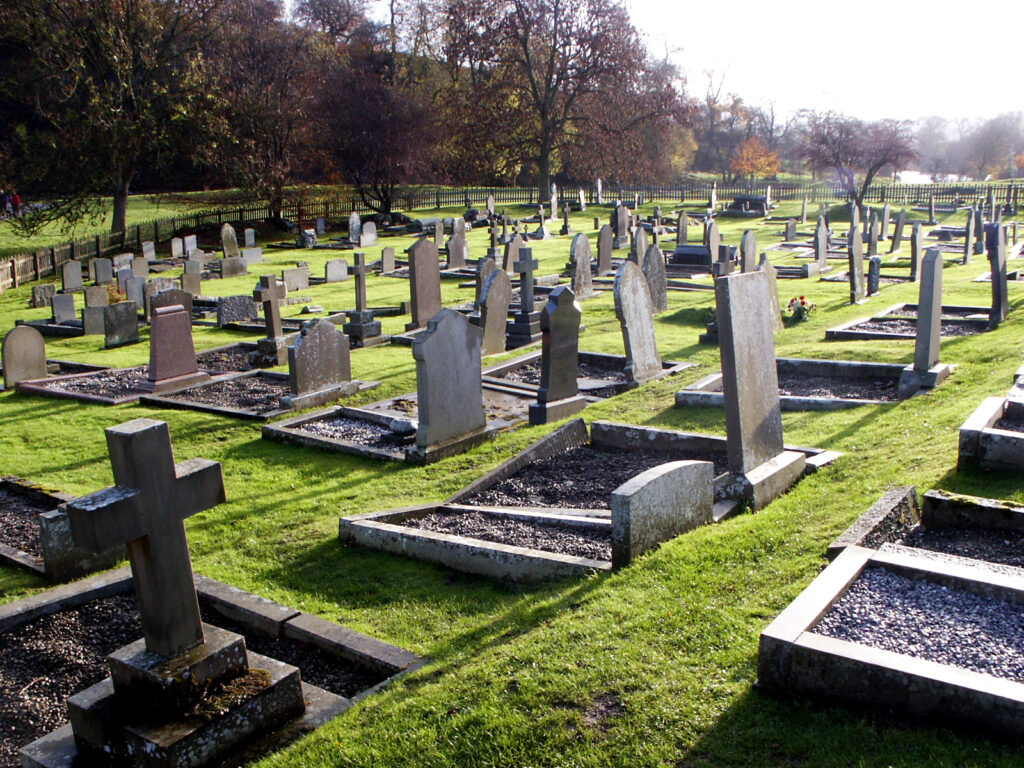
They were both buried in the same lot at Alverthorpe Cemetery, where afterwards, Paul would often go to pay his respects by falling asleep drunk on their graves.
Pub Banishment
Even though he was homeless and without money, Paul still wanted to drink inside a pub. He liked the atmosphere; the ability to chat to other folk. Unfortunately for him though, the pubs held a different view.
Soon, he was banned from every pub in Wakefield. If he tried to enter, he would be thrown out without hesitation. He could no longer fight back. He was much too weak and hindered by the booze.
For a while, he ventured further afield to places like Bradford or Dewsbury to go and drink there, but they too would learn to get rid of this man when they found that their pubs emptied upon his arrival.
This was it for Paul. His reputation as a notorious hard man had come to a swift end. His glory days were over. Now he was known as just another “dirty tramp”.
The Local Tramp
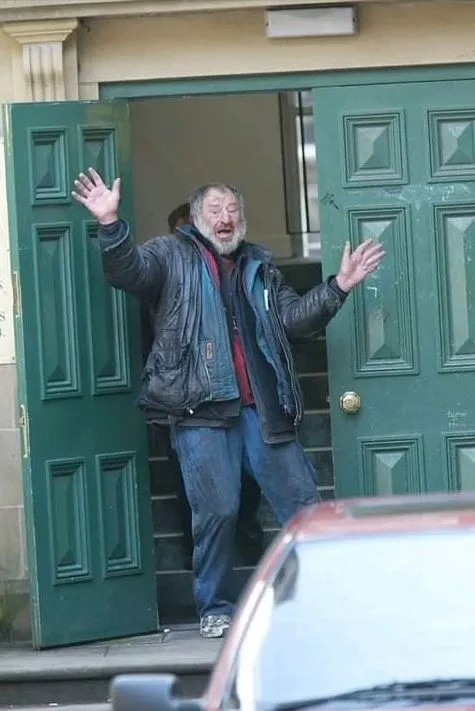
In a short span of time, Paul hardly resembled his prior self anymore. He kept a big bushy beard, had lost a ton of weight, and wore multiple tattered coats to hide his skinny frame. He roamed the streets of Wakefield city centre in a daze. His favourite spots to perch were at the bullring, the bus station, or outside the McDonald’s and cathedral – wherever he was, always with a can of Special Brew in his hand.
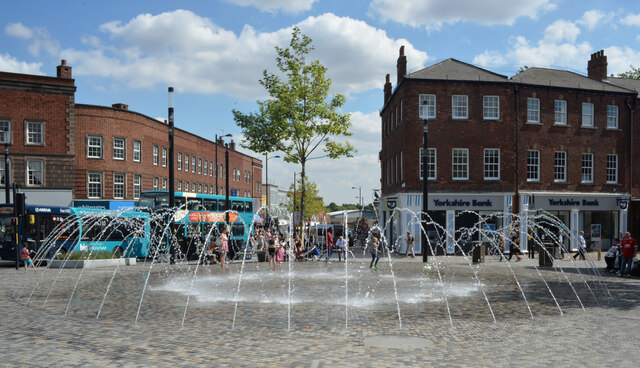
He was your stereotypical tramp. People would watch him raid bins for food or pick tab-ends up off the floor. They would pass him by and if they caught him somewhat sober, he would kindly ask them to open his can of beer.
You see, all the fighting had left him riddled with arthritis in his hands, so he struggled to conduct even the smallest of tasks. When they accepted, he would sometimes ask them for a chat. He liked to reminisce about better times, when he was a boxer and an author. Most people must have thought him crazy, unaware that this unkempt man was telling the truth; unaware that in his heyday he was someone to be feared.
A Loss of Dignity
But mostly, in those days of the early 2000s, Paul was completely unapproachable. As I said before, he had given up on life and had lost all sense of dignity. He would sit talking to himself or to pigeons, transfixed in his own world. He would grunt and growl at passersby, verbally abuse them, or urinate in their direction.
He had become incontinent. He was often seen with piss down his jeans or stunk of faeces because of soiling himself. He would empty his bladder wherever he wanted. He was known to walk into shops and piss all over their bread. Police were called out on many occasions in response to these disgusting acts. Oftentimes, he did it on purpose, just so he could have a place to sleep.
He had fallen from grace. This once confident, dominant man was a shell of his former self. He now terrorised Wakefield in a much different way: threatening to kill children, exposing himself, and being a stain on the public eye. For these crimes, he was awarded the city’s first ASBO, banning him from the town centre for two years.
He was mentally ill, of that, we can be sure. Between 2001 and 2002 he spent time inside Stanley Royd mental hospital, but he didn’t get the appropriate help he deserved. The mental health services weren’t as efficient as they are now. He should have been sectioned and given proper treatment. Regrettably, this never happen, and instead, he was left to suffer out in the world.
The Wolves Circle

Nonetheless, the victims of his past never forgot about the misery he’d caused them when in his prime. They bided their time; waited in the shadows. And when they heard of Paul’s almighty decline, they leapt from the shadows like a ravenous pack of wolves.
Wakefield’s villain became its outcast – subject of derision – his reign of fear had ended and the man so proud of from where he came, was now vindicated by its people.
In 2004, his son, Paul Sykes Jr, was sent to prison for life for committing a heinous murder. He stabbed a fellow drug addict to death over fifty pence. Before this, Paul Jr and his father had been squatting together, taking drugs and drinking.
When his son was imprisoned for the murder, Paul was sickened, and never spoke to him again. But this left Paul defenceless. The last person who might’ve helped stave off the wolves was now locked up for life. And the wolves soon began to circle.
You see, Paul had gathered many enemies throughout his life. People he’d harmed, victimised, made mockeries of. Decades later, they had sons and grandsons who were ready and willing to exact their revenge. They didn’t need to hurt Paul themselves. They could send their younger, more capable relatives to claim their blood for them.
Violent Karma
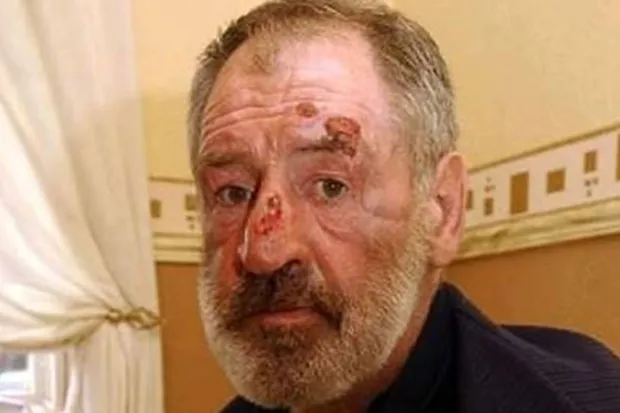
Gangs of teenagers descended on Paul, taking from him piece by piece the pride he had stolen from their fathers. They pelted him with eggs, urinated on him, viciously beat him, and one time, even set him alight. He received a taste of his own medicine. Karma had come knocking at his door. All the terror he had enacted upon Wakefield for decades had finally come back to bite him in the arse.
It became a common occurrence for Paul to be hospitalised after these attacks. He was often seen around town nursing fresh cuts and bruises; saddened and humbled more with every beating.
But one thing Paul wouldn’t do was grass on these lads. Even though they kicked him black and blue, pissed on him, set him on fire; the code he was taught in prison to always keep your mouth shut, he stuck by it to the end.
But weren’t these boys cowards? How cowardly to attack a vulnerable man like him. Maybe he deserved it for his own cowardly actions. But the point was, these boys would never have dared attack the man just ten years prior.
The Leader of the Marginalised
Whilst he had a legion of bloodthirsty youths out to do him harm and make names for themselves, Paul wasn’t without his followers too. Like in his prime, when he would sit in bars regaling stories of his past, young men and women hanging off his every word – he still possessed that same charisma which attracted a new eclectic entourage.
He became the Fagin of Wakefield’s marginalised – the homeless, the junkies, the fellow alcoholics. Wherever he was, these people would sit around him, soaking in his tales of old, all of them drinking super-strength beers, wrapped up in sleeping bags, shielding themselves from the cold. His big booming voice could still be heard for miles. He always kept in good spirits did Paul, even living in the gutter. His favourite motto, taken from “Monty Python’s Life of Brian” – “Always Look on the Bright Side of Life” – was one he lived by, and he would often sing the lyrics whenever the mood arose.
Short Term Housing
A couple of times when he was homeless, local charities found him accommodation. However, when he had these flats, the degenerates flocked and turned them into drug dens. Paul yearned for company so much he allowed anyone entry. He welcomed everyone despite their exploitation.
Paul would sit and drink Special Brew in his armchair, watching boxing on the television, shadowboxing whoever was around, reenacting his bouts. His favourite fighter to watch was Mike Tyson, somebody I assume he could relate to. Another larger-than-life figure who liked to dominate his opponents, and who also used his violence to harrowing effect outside the ring.
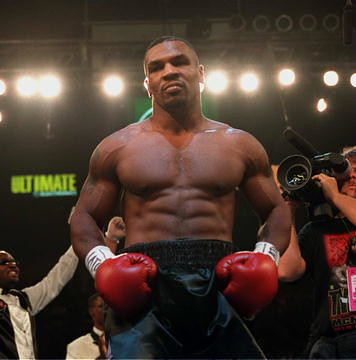
Paul’s first flat overlooked Wakefield Prison, which must have been bittersweet. I imagine he often gazed at its confines from his window, drunk, cursing the place for imprisoning his mind and stealing his soul forever. He could never escape his past; he was tortured by it; every day a futile attempt to numb it out.
He was unable to maintain these flats for long. In a drunken rage he smashed them up, left them like a pigsty, preferring to roam the streets instead. He was evicted, cast back out into his self-imposed punishment to sleep in shop doorways, inside dumpsters, or outside loading bays – wherever he could rest away from the wolves.
Finding God Near Death
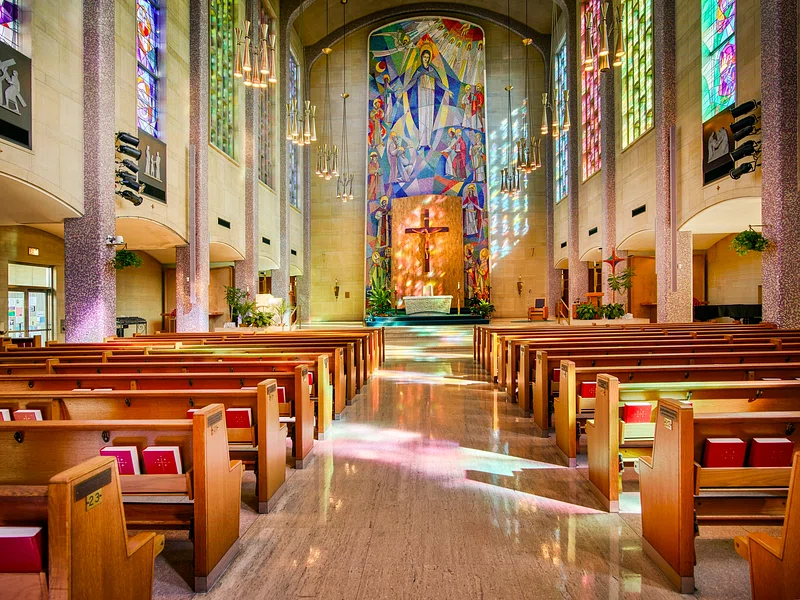
In his final year on this earth, Paul began to ask God for forgiveness. He started to go to Wakefield’s Baptist Church, seeking solace there, studying the bible, hoping and praying God would take him into his fold. Maybe Paul realised he didn’t have much time left and must atone for his sins.
He suffered from delirium tremens – hallucinations, excruciating pain – whenever he was without a drink. His skin tinged yellow; he was a bag of bones; his liver failing – cirrhosis, a disease untreatable, a harbinger of death.
In a few turbulent years, alcohol had ravaged his insides to where he was unable to function without aid.
Due to his degradation, he was awarded another flat, where two sisters cared for him in his final stages of life. They washed him, clothed him, wiped excrement from his body. He could hardly walk any more, his memories disappearing – potential signs of Parkinson’s and dementia.
This once intelligent, powerful, huge specimen of a man was decaying before their eyes. He’d possessed the qualities to be anything he wanted, but instead, he chose to leave a path of carnage in his wake, and then, to self-destruct.
His fight with booze was almost over, his greatest opponent – more formidable than any in the ring – had beaten him for good. When he was found unresponsive in a bus shelter, alcohol had knocked him down for the final time.
Death & Funeral
He was rushed to hospital and laid in a coma for several days. When he awoke, his sister was at his bedside to forgive him for all he had done. He begged her to give him a drink of water, so thirsty was he, so thirsty for water not for alcohol, but it was too late, the doctor had ordered him nil by mouth. In his final dying hours, all Paul wanted was another drink.
He passed away 7th March 2007 at sixty-years-old. He was skeletal, unidentifiable, apart from his shovel hands. His funeral was held a week later, on the 15th of March, at Wakefield’s Baptist Church, a place where Paul had sought redemption in his final year.
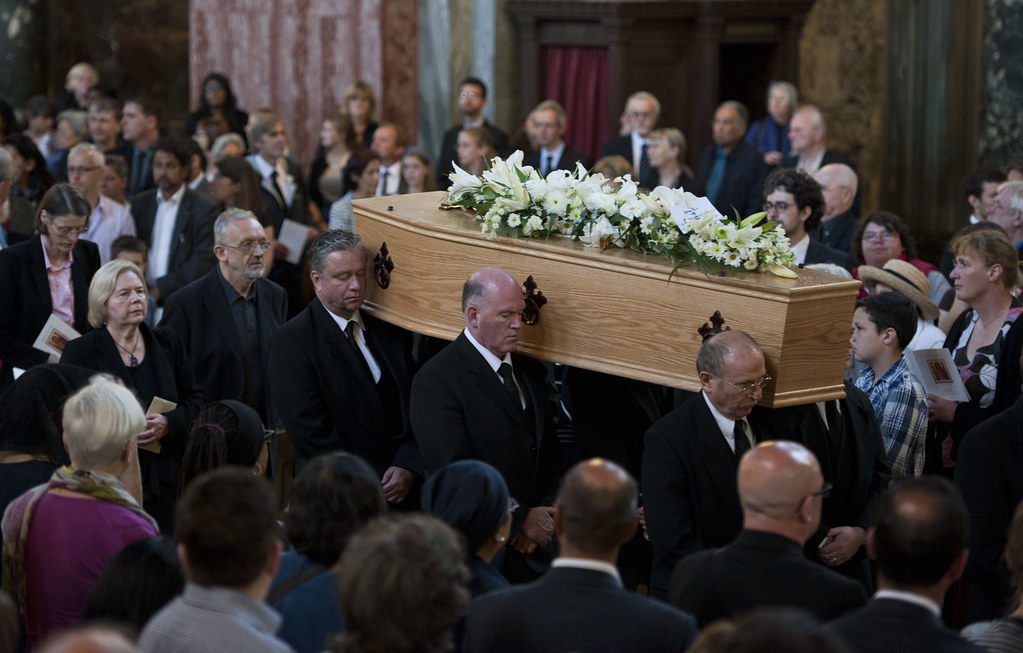
It was packed with people; every seat taken. All lives he had touched in happy ways. Despite his many enemies, he wasn’t a complete monster, there were people whose lives he’d filled with joy.
His cadaver was beautifully transformed into resembling the man he once was. Dressed in a suit, his bushy beard shaved off apart from his trademark moustache – he resembled the Paul of days gone by.
Nobody there wanted to remember the lost soul he had become. They wanted to remember the Paul Sykes that was larger than life, a true character, one of a kind, who didn’t suffer nonsense, who lit up a room – for good or for worse – wherever he went, and who lived life to the fullest, experiencing more than most people ever would during his short life; the man who was a boxer, an author, subject of two documentaries, a traveller of the world.
The song that was played as his coffin was carried inside the church was that same motto he had lived by until his dying day. “Always Look on the Bright Side of Life”. When it played, there wasn’t a dry eye in the room.
2 responses to “Paul Sykes – A Life of Chaos – Part 6”
[…] Previous… Next… […]
[…] Previous… […]